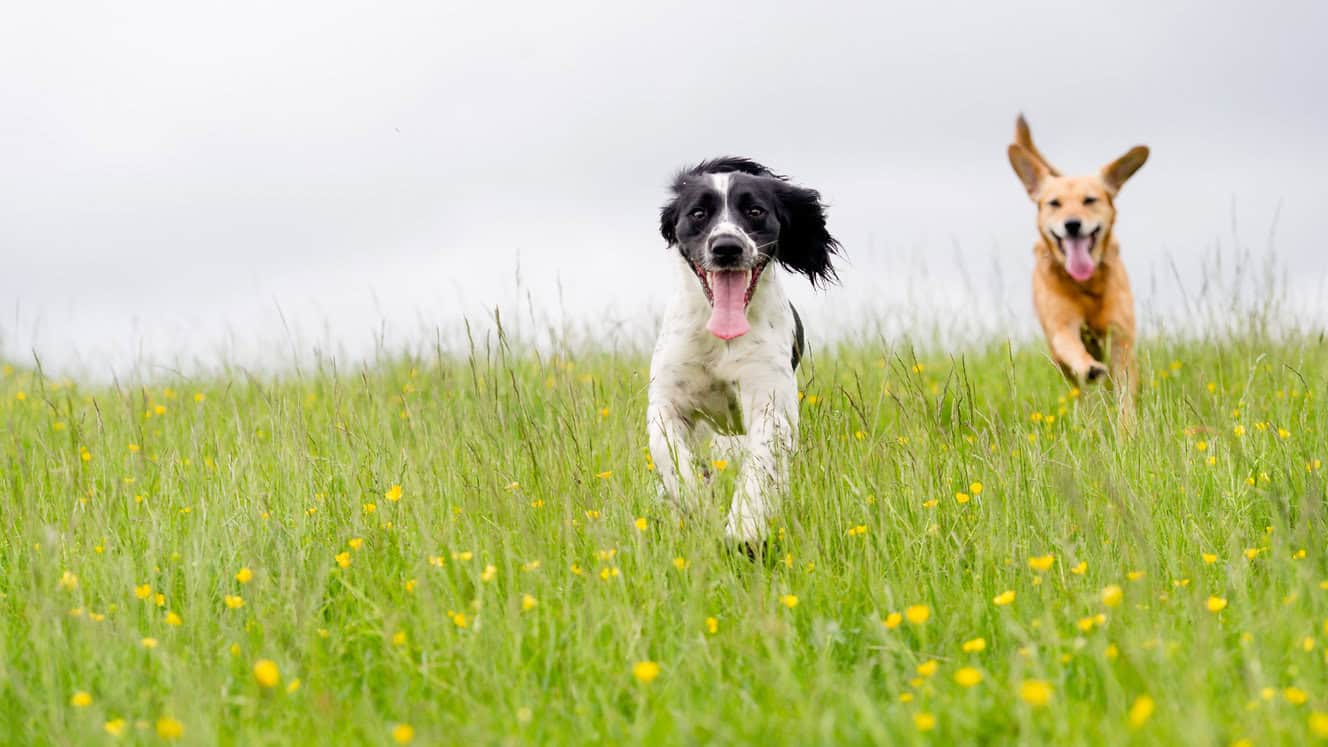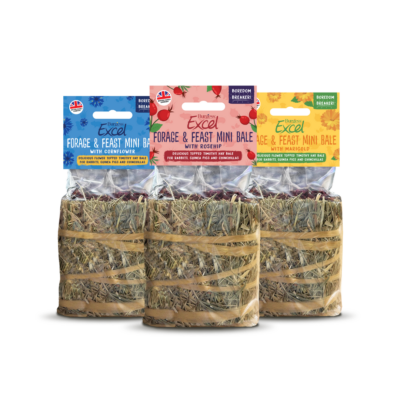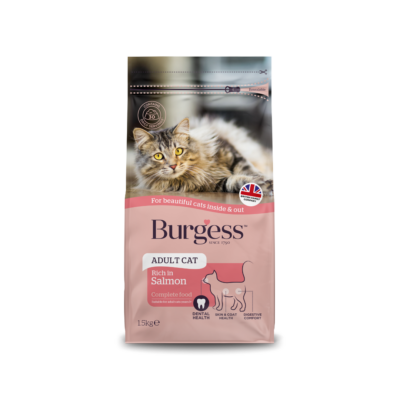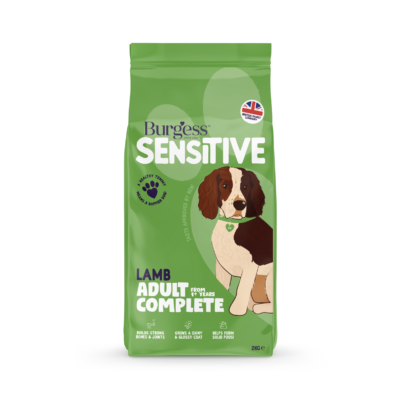
“Science says owning a pet is good for us!” states veterinary charity PDSA. “As long as you've done your research and got the right pet for you, they will bring happiness and joy to your life in more ways than one!”
If you’re lucky enough to have loyal and loving pet animals in your life, then it’s a sentiment you’ll wholeheartedly agree with. As well as providing companionship and having a warm, furry friend to care for, our pets benefit us in many other ways too.
The charity continues: “Dogs need walking every day, which means you need to walk as well – those puppy dog eyes and waggy tails won't let you off the hook – just what you need to kick start a healthy lifestyle! Without playtime, a bored kitten will soon get into mischief. Keeping them entertained and getting you moving around will be beneficial for our own health too!”
And it doesn’t matter what pet animals you’ve got – small pets such as rabbits, guinea pigs, hamsters, chinchillas, gerbils, degus, rats and ferrets can provide their human with a fabulous sense of wellbeing.
Dr Elena Ratschen from the Department of Health Sciences, University of York, the lead author in a recent study into the benefits of pet ownership, reveals: “We discovered that the strength of the emotional bond with pets did not statistically differ by animal species, meaning that people in our sample felt on average as emotionally close to, for example, their guinea pig as they felt to their dog.”
WE LOVE SMALL PETS! – Meadow Munchies, Lucious Leaves, Forage and Feast Hay Bars, Mini Bales and more! Show your small pets just how much they mean to you with a LIMITED EDITION Excel Treats Selection Box >>
Whatever your age, pets are friends with benefits
Age isn’t an issue either – both young and old can benefit from having pet animals in their lives. In fact, sometimes pets really can be the best medicine.
Dr Susan Trachman, an Associate Professor at George Washington University and Assistant Professor at Virginia Commonwealth, USA, says: “Current Gerontology and Geriatrics Research reported positive effects on the mental health of older adults. The American Journal of Cardiology published a report that found owning a cat or a dog is associated with a decreased prevalence of hypertension. The authors suggested pet ownership provides emotional support, which may lower blood pressure due to reduced activity in the area of the central nervous system associated with the fight or flight response.”
WE LOVE DOGS! – Lamb, turkey and salmon! Treat your canine chum with our Sensitive Dog Food bundle >>
“Pets are known to help reduce anxiety by offering companionship to their owners, particularly for young people,” adds The Children’s Society. “It’s soothing to stroke a cat at the end of a stressful school day or walk a dog when you’re upset. Pets are a great way to improve social skills in young people and help them to make friends. Animals are easy icebreakers. They can act as a topic of conversation for those who struggle with socialising.”
WE LOVE CATS! – Salmon, chicken and chicken with duck! Give your fussy feline a choice with our Adult Cat Food bundle >>
Pets provide emotional support in a unique way
Pets can also help people who are struggling with traumatic life events or mental health issues. A report published in BMC Psychiatry states: “Pets were able to provide unique emotional support as a result of their ability to respond to their owners in an intuitive way, especially in times of crisis. The study found that people were able to confide in their pets when they were unable to open up to other people. In this respect, pets provided a safe environment where people can talk without fear of being judged or being a burden to others. By providing unconditional positive regard, pets promoted emotional stability through the regulation of feelings, management of stress and helping people to cope with difficult life events.”
The relationship between pets and people should work both ways
Our pets give us so much, so it’s important to remember that it’s a two-way relationship.
Jacqueline Boyd, Senior Lecturer in Animal Science at Nottingham Trent University, says: “It’s widely recognised that pets can help support humans’ health and wellbeing – but the benefits should be mutual. Our pets are sentient beings who deserve to be treated with care and respect, not as tools to support humans’ wellbeing to the detriment of their own.”
Importantly, our pets count on us for support too. Jacqueline Boyd adds: “Pets can be an important source of comfort, security and support – a safe haven – for their owners. But pets, too, find solace in their humans. Ultimately, living with a companion animal should be a mutually beneficial, healthy and happy relationship.”
How people and pets can get healthier and happier together
She suggests five ways for humans and their pets to get healthier and happier together:
- Rest and relaxation Companion animals can help relieve stress and distress. Research has shown that the physical presence of a dog can reduce humans’ blood pressure and heart rate during a demanding task – more so than the presence of a family member or friend. Sleeping with your pet may also support good quality sleep as well as warmth, security, and companionship. Many pets seem to prefer to sleep in close proximity to others, so there might be a mutual benefit too.
- Relationship building Relationship building is essential for both owner and pet to maintain good health. A positive human-pet relationship is one that acknowledges owner responsibility for pet welfare and wellbeing.
- Making (two and four legged) friends Taking your pet out for a walk might have more health benefits than just exercise. Pets can help foster friendships and relationships – and build a sense of community. Pet owners, for instance, are more likely to get to know other people in their local area. Why is this? Research suggests that pets have a profound effect on ‘social lubrication’, helping create relationships with other pet owners and animal lovers. Pet owners, then, are less likely to experience loneliness and social isolation than people with no pets.
- Dietary decisions Vets agree that the average waistline of pets is getting larger. This mimics what is happening in the human population – and diet and exercise are two major contributory factors. The incidence of obesity in pet dogs – but not cats – is linked to the waistline of the owner, suggesting a causal lifestyle relationship. So, owners tend to unintentionally damage their pets’ health because of same poor diet and exercise habits that cause their own health issues. By supporting people to make better dietary decisions for their pets, it might also be possible to encourage healthier eating for the human.
- Walking for wellness Regular physical activity is associated with many health benefits, both for people and pets. Walking is cost effective and relatively accessible way for most dog owners to improve the physical health and general wellbeing of both humans and their pets.For example, regular dog walkers have lower body masses and higher levels of physical activity than people without dogs, or those who do not walk the dogs they live with. Also, walking at least three times a week can ease back pain and reduce the risk of recurrence by half.
Jacqueline Boyd concludes: “Following these five guidelines should help owners and their pets to find comfort and calm in each other and maintain a healthy weight and outlook.”
“Our pets can be an absolute lifeline for us,” adds PDSA. “They not only provide companionship and add structure to our day; they are comforting, entertaining and loving, which helps to reduce our anxiety as we focus on them. Any animal that we own depends on us to meet their 5 welfare needs including keeping them and their home environment clean and well looked after. The responsibility that comes with owning a pet helps our own physical and mental health and, of course, a cute, warm companion is a bonus!”
LOVE PETS? TRUST BURGESS – WE’RE EXPERTS IN OUR FIELD!
Burgess Pet Care is one of the UK's leading pet food manufacturers for the country’s most popular pets – dogs, cats, rabbits, guinea pigs, chinchillas and degus, hamsters, gerbils and mice, rats and ferrets.
At Burgess Pet Care, all our high-quality recipes have been formulated by vets and nutritionists. This ensures they contain the right balance of vitamins and minerals to supplement your pet’s diet to help keep them happy and healthy. With a long tradition of supporting British farmers, we actively source all our ingredients as close to our mill as possible.
For helpful feeding advice, call our expert team on 0800 413 969. They’re available 9am-5pm, Monday to Friday. Alternatively, use our online form to get in touch.
CARE MORE Find lots of useful advice on caring for all your pets from Burgess, the pet experts. Training, nutrition, grooming and general care. It's all here >>
Is your dog a Burgess dog? Your cat a Burgess cat? Your small pets Burgess small pets? Join the Burgess Pet Club for exclusive offers and rewards.
If you found this interesting, you may also like:
SHOW YOUR PETS THE LOVE This Valentine’s Day, why not make a pledge to your dog, cat, rabbits, guinea pigs, ferrets, hamster, degus, gerbils, rats or mice that you’re going to be the best pet owner you can possibly be.
MY FURRY VALENTINE As every pet owner will testify, having an animal in your life in a very enriching experience. In fact, for many people, they are a much-loved part of the family. But why do humans adore their pets so much?
NEED A THERAPIST? YOUR PET WILL SEE YOU NOW... It’s a widely accepted fact that people of all ages can benefit from a partnership with a pet animal. From being loving and loyal companions to boosting our mental health, our dogs, cats, rabbits, guinea pigs, ferrets and other small pets are amazing life enhancers.
PET PERSONALITIES – NATURE V NURTURE? Does nature or nurture have the biggest influence on our pets’ personalities and behaviour? According to animal experts, it’s complicated! What is clear is that helping our pet friends navigate the human world through socialisation and training goes a long way to enabling them to enjoy happy, healthy and fulfilled lives.
YOU'RE MY BEST FRIEND Recent research has revealed that half of the UK sees their dog as their best friend, rather than a pet, which probably comes as no surprise to many a devoted dog owner...
WHY PETS ARE SO GOOD FOR OUR MENTAL WELLBEING The unconditional love and companionships pet animals provide can be a lifeline for people contending with mental health issues.
HOW TO PLAY GAMES WITH CATS OF ALL AGES Like all baby animals, kittens love to play. As well as being lots of fun, play teaches young cats about the world around them, aids their physical development and hones their fabulous feline skills. As cats get older, play is a great way to keep fit, lean and healthy, as well as keeping their brain alert and active.
DOGS CAN SMELL HOW HUMANS ARE FEELING When you’re happy and you know it, your dog does too – joyfully adding to the moment with wags, barks and leaps of delight. Likewise, when you’re feeling down, your dog will quietly sit by your side with empathetically sad eyes to show their support.
HELP YOUR PETS GET INTO THE EXERCISE GROOVE The Healthy Pet Club says: “As with us, one of the main benefits of exercising your pet is for health and fitness reasons. This ensures that their muscles remain strong and supple, and to also ensure that they don’t become overweight.”
MAKING HAY-TIME PLAYTIME FOR BUNNIES Rabbits need to eat their own body size in hay every day to stay healthy. Our in-house vet Dr Suzanne Moyes advises on how to help your bunnies munch their way through their daily ration by making hay-time a fun experience.
WHAT PUTS YOUR SMALL PETS IN A GOOD MOOD? Along with socialising with their same species companion and interacting with their favourite human, our survey reveals the best thing you can to do to give your small furries a happiness boost…
GAMES TO PLAY WITH YOUR RABBITS Bunnies are smart and active creatures who like lots of things to do and games to play – particularly if there are some tasty rabbit treats involved. We’ve some fun ideas to add interest and excitement to your buns’ day, which will help them stay physically and mentally fit.
GAME PLAN From ‘treat-seeking missions’ to indoor circuits, getting creative with cardboard box activity centres and paper bag wraps, we’ve lots of ideas for you to boost the feelgood factor for your four-legged friends.
WILD AT HEART Inside every pampered small pet is the desire to exhibit their innate, hardwired, natural behaviours which reveal their wild origins. It’s the reason why bunnies want to dig and burrow, guinea pigs like to keep a watchful eye on what’s going on from a safe hiding place, hamsters stuff food in their cheek pouches and chinchillas prefer to sleep hunched up. Find out more about the natural and fascinating behaviours of some of our favourite small furries.
HOW TO TELL IF YOU HAVE A HAPPY PET Wheek-wheeking, bruxing, dooking, chirping, binkying, popcorning – there are all sorts of ways our pets tell us they’re feeling good, once you know what to look for...

















